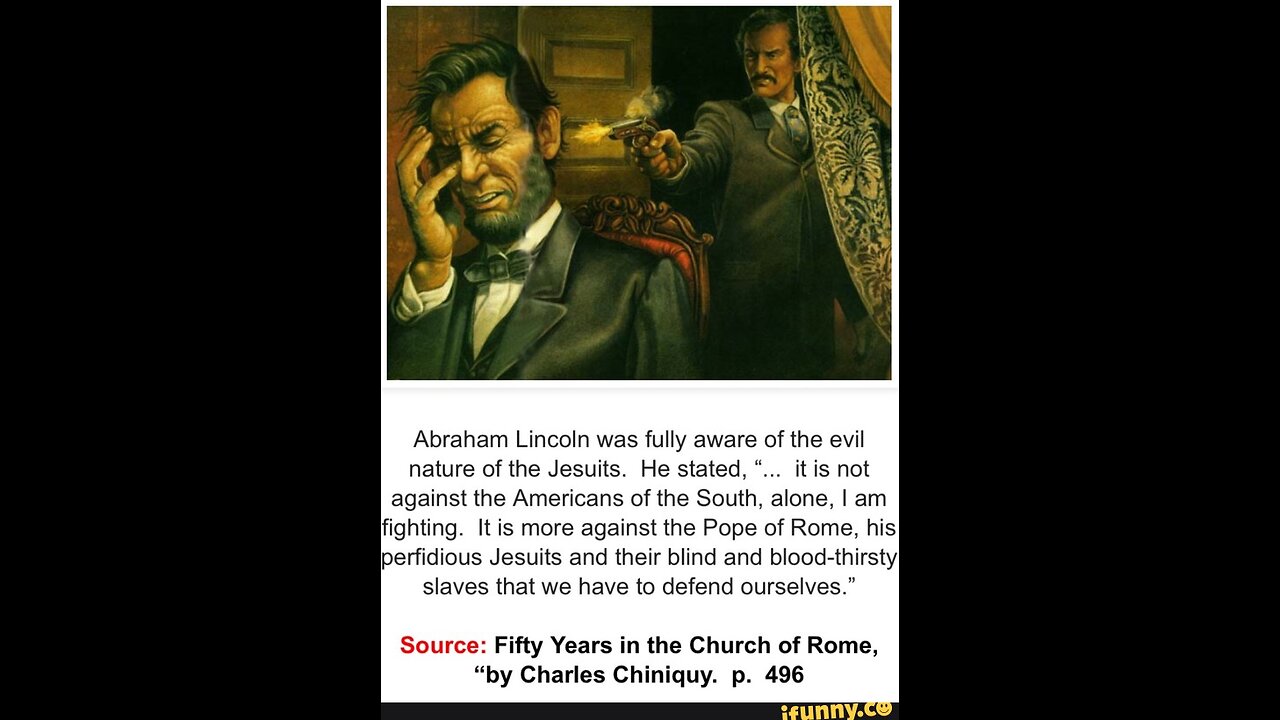Premium Only Content

Another conversation with A.I. - Bible Eschatology and political history
The author of The Book of Jubilees (2nd century BC), a Jewish pseudepigraphal book that calculated the duration of Antiochus Epiphanes IV’s persecution as three years and six months1.
Hippolytus (170-235 AD), a Christian theologian and martyr who wrote a commentary on Daniel and interpreted the 2,300 evenings and mornings as 1,150 days based on historical records2.
Eusebius (260-340 AD), a Christian historian and bishop who followed Hippolytus’ interpretation of Daniel 8:14 as referring to 1,150 days3.
Ephrem the Syrian (306-373 AD), a Christian poet and theologian who wrote an exposition on Daniel and understood the 2,300 evenings and mornings as 1,150 days.
Theodoret (393-457 AD), a Christian bishop and commentator who explained Daniel 8:14 as referring to 1,150 days based on historical evidence.
John Chrysostom (347-407 AD), a Christian preacher and bishop who preached on Daniel and applied the 2,300 evenings and mornings to 1,150 days according to history.
Cyril of Alexandria (376-444 AD), a Christian patriarch and theologian who wrote an introduction to Daniel and interpreted the 2,300 evenings and mornings as 1,150 days based on history.
The author of The Book of Jubilees (2nd century BC), a Jewish pseudepigraphal book that calculated the duration of Antiochus Epiphanes IV’s persecution as three years and six months.
Hippolytus (170-235 AD), a Christian theologian and martyr who wrote a commentary on Daniel and interpreted the 2,300 evenings and mornings as 1,150 days based on historical records2.
Eusebius (260-340 AD), a Christian historian and bishop who followed Hippolytus’ interpretation of Daniel 8:14 as referring to 1,150 days3.
Ephrem the Syrian (306-373 AD), a Christian poet and theologian who wrote an exposition on Daniel and understood the 2,300 evenings and mornings as 1,150 days.
Theodoret (393-457 AD), a Christian bishop and commentator who explained Daniel 8:14 as referring to 1,150 days based on historical evidence.
John Chrysostom (347-407 AD), a Christian preacher and bishop who preached on Daniel and applied the 2,300 evenings and mornings to 1,150 days according to history.
Cyril of Alexandria (376-444 AD), a Christian patriarch and theologian who wrote an introduction to Daniel and interpreted the 2,300 evenings and mornings as 1,150 days based on history.
Martin Luther (1483-1546 AD), a Protestant reformer who translated Daniel into German and commented on Daniel 8:14 as referring to 1,150 days according to history.
Some more interpreters who believed that the 2,300 evenings and mornings refer to 1,150 days are:
The author of The Book of Daniel (2nd century BC), a Jewish apocalyptic book that used the term “evenings and mornings” to denote daily sacrifices in Daniel 8:11-13 and 9:21-271.
Porphyry (234-305 AD), a Neoplatonic philosopher and critic of Christianity who wrote a commentary on Daniel and argued that the 2,300 evenings and mornings were 1,150 days based on historical records2.
Augustine (354-430 AD), a Christian theologian and bishop who followed an allegorical interpretation of Daniel 8:14 and saw the 2,300 evenings and mornings as symbolic of a long period of time that could be divided by two3.
John Wycliffe (1320-1384 AD), an English theologian and reformer who translated Daniel into English and commented on Daniel 8:14 as referring to 1,150 days according to history.
-
 LIVE
LIVE
Jeff Ahern
1 hour agoMonday Madness with Jeff Ahern (6am Pacific)
1,065 watching -
 LIVE
LIVE
PudgeTV
12 hours ago🔵Vigilante Nights - Batman: Arkham Origins | Live Playthrough Pt. 5
237 watching -
 15:21
15:21
Degenerate Jay
15 hours ago $4.73 earnedThe Mystery Of Silent Hill 2's Strange Photos Has Finally Been Solved
36.4K9 -
 9:47
9:47
Cooking with Gruel
19 hours agoMastering Potato Gratin
20.7K15 -
 8:34
8:34
GBGunsRumble
14 hours agoGBGuns Range Report 24NOV24
15.4K4 -
 2:04:09
2:04:09
Nerdrotic
13 hours ago $87.98 earnedNew Peruvian Megalithic Site Discovery w/ Michael Collins | Forbidden Frontier #083
184K21 -
 6:40:53
6:40:53
Fresh and Fit
14 hours agoMyron TRIGGERED Rubi Rose, And Debating Cry Baby Blax On X Spaces!
180K125 -
 4:54:16
4:54:16
TheSaf3Hav3n
13 hours ago $27.32 earnedCALL OF DUTY: BLACK OPS 6 | A QUIET PLACE: THE ROAD AHEAD | #RumbleTakeOver
94.1K6 -
 4:05:35
4:05:35
TheNateVibez
12 hours agoOmni-🤖 - First Rumble Stream.🫡 - VETERAN
80K4 -
 2:59:26
2:59:26
Tundra Gaming Live
17 hours ago $5.50 earnedThe Worlds Okayest War Thunder Stream//FORMER F-16 MAINTAINER//77th FS//#rumblefam
49.2K2